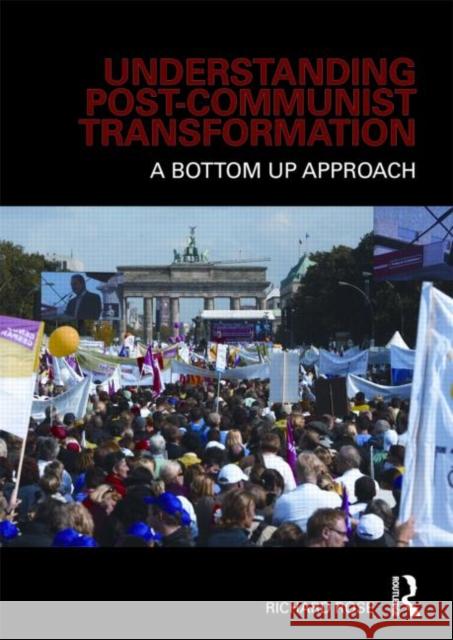Understanding Post-Communist Transformation: A Bottom Up Approach » książka
Understanding Post-Communist Transformation: A Bottom Up Approach
ISBN-13: 9780415482196 / Angielski / Miękka / 2008 / 234 str.
Understanding Post-Communist Transformation: A Bottom Up Approach
ISBN-13: 9780415482196 / Angielski / Miękka / 2008 / 234 str.
(netto: 255,98 VAT: 5%)
Najniższa cena z 30 dni: 246,78
ok. 16-18 dni roboczych.
Darmowa dostawa!
The fall of the Berlin Wall launched the transformation of government, economy and society across half of Europe and the former Soviet Union. This text deals with the process of change in former Communist bloc countries, ten of which have become new European Union (EU) democracies while Russia and her neighbours remain burdened by their Soviet legacy. Drawing on more than a hundred public opinion surveys from the New Europe Barometer, the text compares how ordinary people have coped with the stresses and opportunities of transforming Communist societies into post-Communist societies and the resulting differences between peoples in the new EU member states and Russia. Subjects covered by Understanding Post-Communist Transformation include:
- Stresses and opportunities of economic transformation
- Social capital and the development of civil society
- Elections and the complexities of party politics
- The challenges for the EU of raising standards of democratic governance
- Differences between Russia's and the West's interpretation of political life
The fall of the Berlin Wall launched the transformation of government, economy and society across half of Europe and the former Soviet Union. This text deals with the process of change in former Communist bloc countries, ten of which have become new European Union (EU) democracies while Russia and her neighbours remain burdened by their Soviet legacy.
Drawing on more than a hundred public opinion surveys from the New Europe Barometer, the text compares how ordinary people have coped with the stresses and opportunities of transforming Communist societies into post-Communist societies and the resulting differences between peoples in the new EU member states and Russia.
Subjects covered by Understanding Post-Communist Transformation include:
- Stresses and opportunities of economic transformation
- Social capital and the development of civil society
- Elections and the complexities of party politics
- The challenges for the EU of raising standards of democratic governance
- Differences between Russia’s and the West’s interpretation of political life
Written by one of the world's most renowned authorities on this subject, this text is ideal for courses on transition, post-communism, democratization and Russian and Eastern European history and politics.











